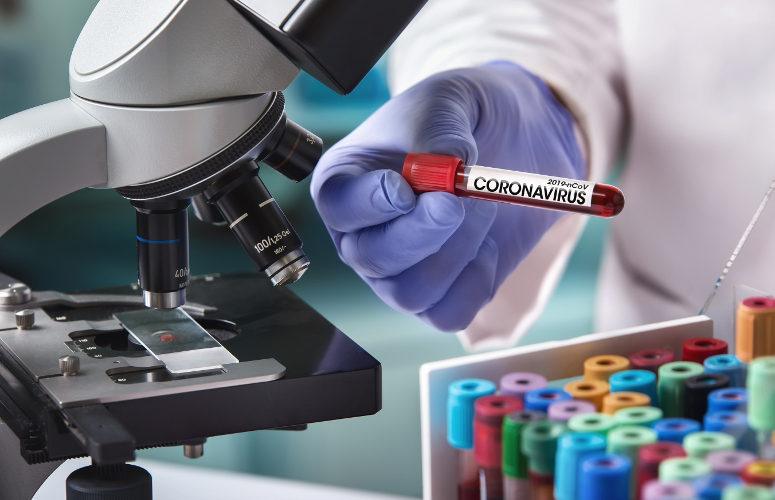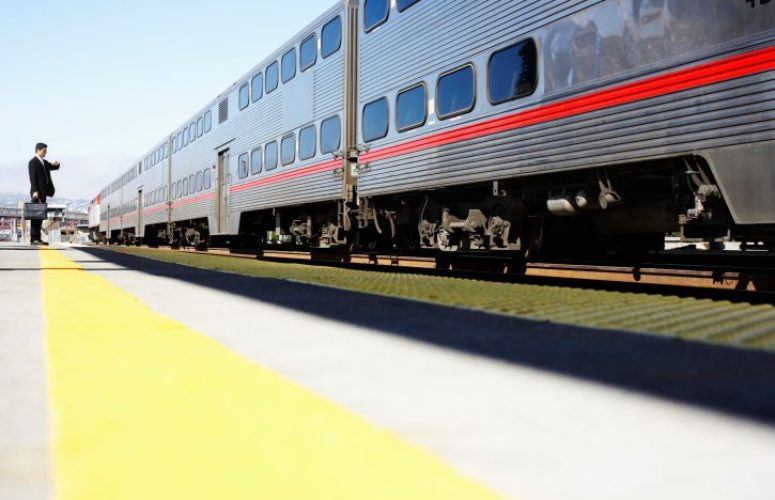
NJ TRANSIT Releases ‘Your Ride to Recovery’ Guidelines
Plan Outlines Measures and Preparations Taken to Ensure Successful Return for Customers
On Jun 17, 2020As part of its continued recovery efforts, NJ TRANSIT has released its “Your Ride to Recovery” guidelines detailing the critical steps being taken to protect customers and employees during the reopening of New Jersey and the region, as we prepare for customers to return to the transit system. These guidelines are consistent with “The Road Back”, New Jersey’s roadmap for restoring economic health through public health.
In addition to NJ TRANSIT taking any and all measures to continue to make the system as safe and possible, the agency is reinforcing a “shared responsibility” approach that relies on customers and employers doing their part as well. The plan focuses on NJ TRANSIT’s commitment to six areas: Service, Cleanliness, Distancing, Communication, Protective Equipment & Public Safety and Screening & Testing.
“There has been no higher priority at NJ TRANSIT than the health and safety of our customers and employees since the onset of the pandemic,” said NJ TRANSIT President & CEO Kevin Corbett. “While we are committed to doing everything we can to ensure the cleanest and safest transit environment, we can’t do it alone. We are asking customers and employers to do their part as well. If we each commit to doing our part, we’ll avoid further spread of the virus and deliver the safest possible travel experience until all the restrictions are lifted.”
During the pandemic, NJ TRANSIT has been dedicated to maintaining a clean and safe transit system for all customers and employees. The guidelines include the extensive measures NJ TRANSIT has already taken, will continue to take, and is committed to implementing. In addition to NJ TRANSIT’s responsibilities, the guidelines also provide clear and simple actions that customers and employers should take to contribute to success.
Face Coverings Are Essential to Mass Transit’s Recovery. It will be a challenge for transit agencies across the country to take the “mass” out of mass transit. As numerous authorities have declared, including the World Health Organization (WHO), the challenges of distancing on mass transit makes wearing face coverings to limit the spread of the virus absolutely essential. Wearing a proper face covering correctly, along with every day preventive actions, helps protect you and everyone with you.
Service: NJ TRANSIT will continue to monitor ridership, aligning service to manage capacity in accordance with the Governor’s Executive Order 125. Throughout our recovery, NJ TRANSIT service levels will be guided by the latest health recommendations and policies. To inform our operational decisions as we prepare for our customers’ return, we have been actively leveraging data, tools and regional information sources to monitor and identify projected trends in ridership and customer behavior. This comprehensive trend analysis will continue throughout the recovery period to ensure our recovery plans will remain flexible, responsive and data-driven.
Changes in service will be announced using all available communications channels, including Twitter, Facebook, platform screens, the NJ TRANSIT Mobile App and www.njtransit.com
Cleanliness: NJ TRANSIT continues enhanced cleaning efforts to include disinfecting vehicles every 24 hours. The enhanced cleaning and disinfecting regimen in stations will continue and includes additional disinfecting of frequent customer touchpoints such as ticket vending machines, handrails and door handles. Customers are being asked to minimize contact with surfaces and touchpoints and use touchless payment through the NJ TRANSIT Mobile App.
Distancing: NJ TRANSIT will continue to monitor ridership daily and make service adjustments as needed to improve distancing. Customers should make all practicable efforts to create distance between fellow riders. In addition, customers should avoid loud talking or restrict phone conversations until after their trip, as these increase the expulsion range of droplets which may contain the virus. Employers can also play a significant role by helping flatten the peak travel curves and spread ridership more evenly over the entire service day by allowing employees to continue to work from home if they can, or stagger work hours and work days.
Employers can also play a significant role by helping flatten the peak travel curves and spread ridership more evenly over the entire service day by encouraging employees to continue to work from home if they can, or stagger work hours and work days.
Personal Protective Equipment and Public Safety: NJ TRANSIT will maintain the requirement for all public-facing employees to wear face coverings at all times when performing their duties. Customers are required to do the same under Governor Murphy’s Executive Order 125, which states that customers must wear face coverings while on public transit vehicles (e.g. buses, trains, light rail vehicles and Access Link vehicles). NJ TRANSIT has extended this requirement to the entire journey to also include all NJ TRANSIT owned public spaces (e.g. stairs, platforms and stations), regardless of physical distance.
Communication: NJ TRANSIT is launching a “SAFE NJ” signage and messaging campaign, which will include prominent, easy-to-understand graphics and signs throughout stations and vehicles, to provide easy-to-understand instructions to encourage customers to model ideal transit behaviors.
Testing: NJ TRANSIT has made COVID-19 testing available to all employees at several locations throughout north, central and south Jersey. Customers who are feeling ill are asked to not ride public transit.
The complete list of “Your Ride to Recovery” guidelines can be found at www.njtransit.com/recovery.
To access more business news, visit NJB News Now.
Related Articles:





